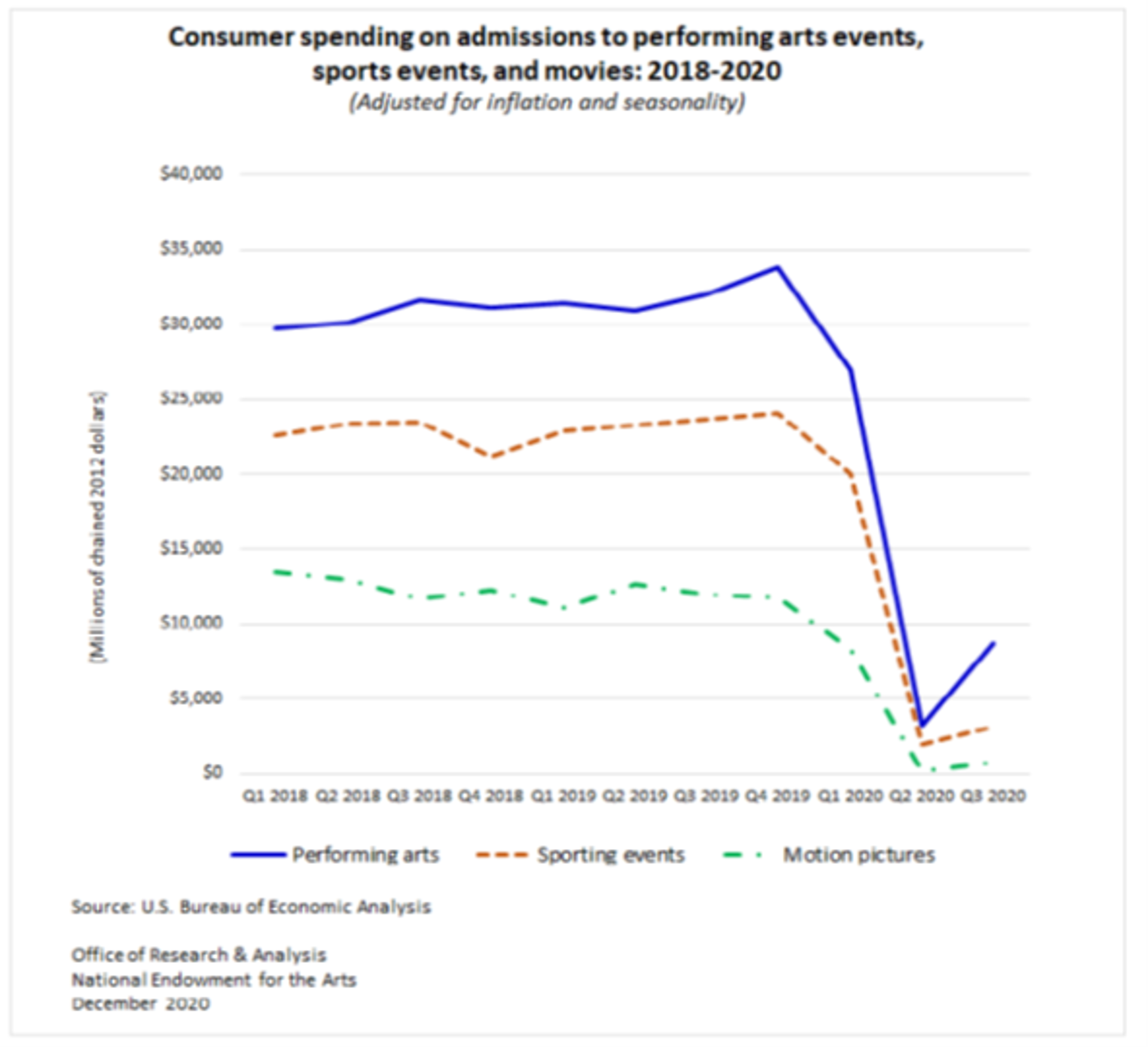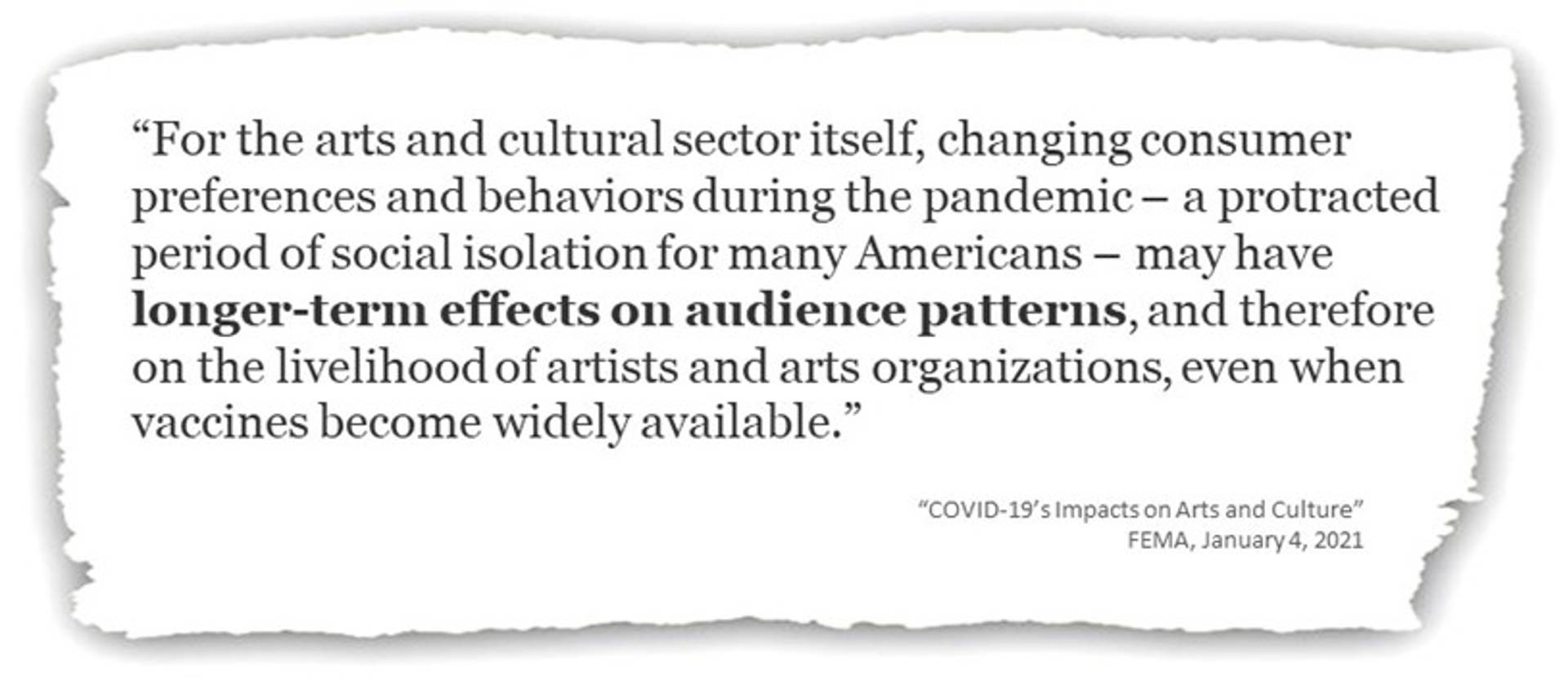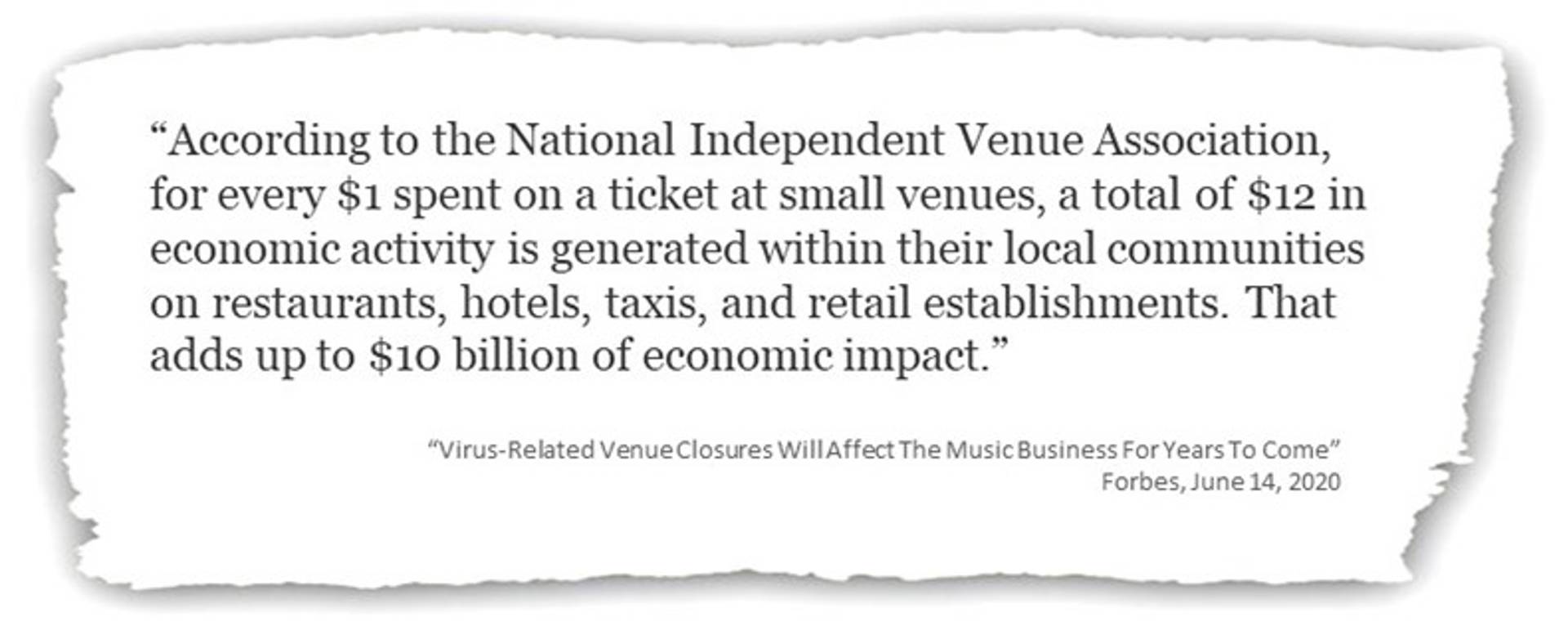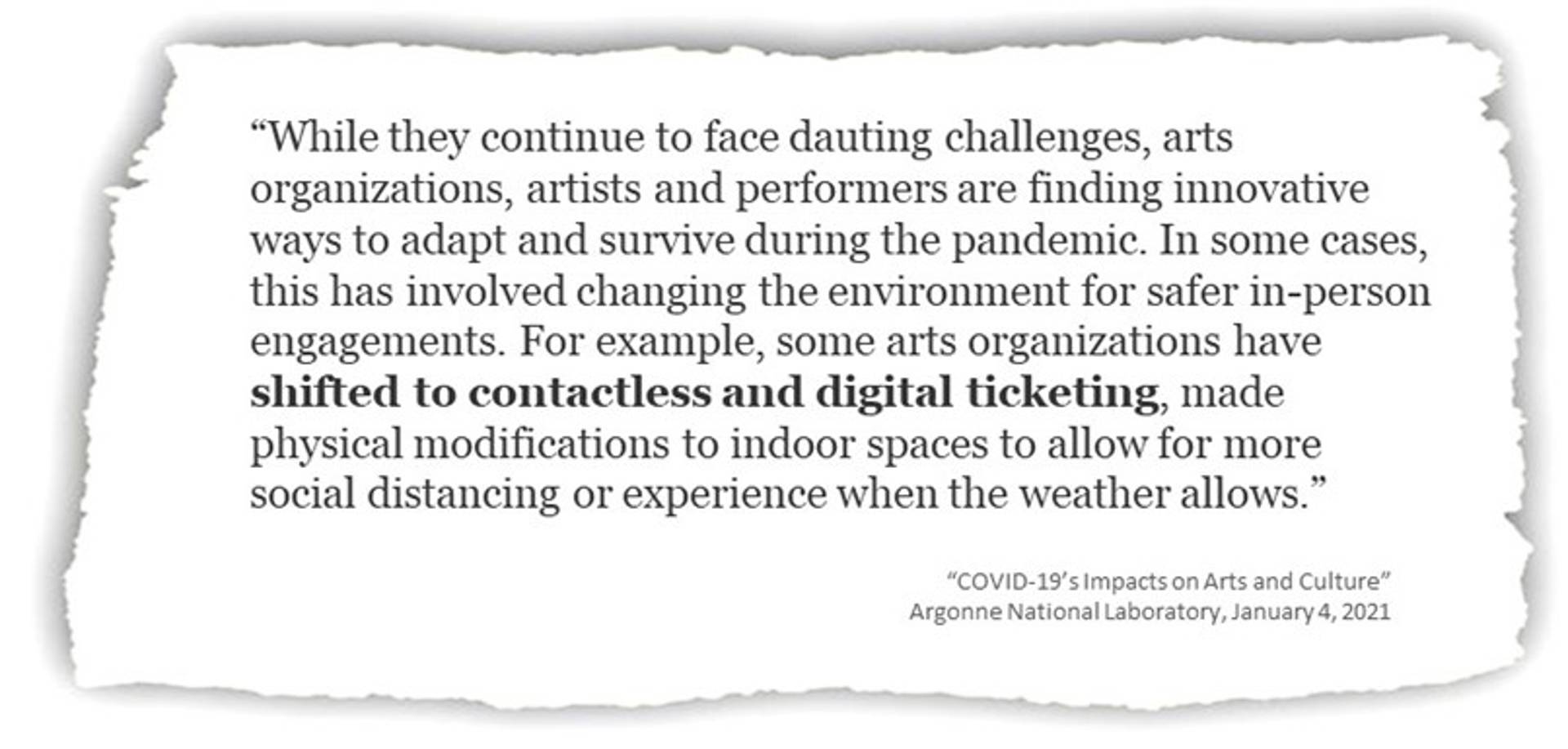What will the future look like?
The pandemic’s impact on Strathmore – and all those in the arts – was dramatic and immediate. With government-mandated closures and public fears of being exposed, consumer spending on the arts fell sharply, as the chart shows.
But even with vaccines, there are many predictions that consumer behaviors have been changed forever. Numerous surveys show that while consumers are eager to return to in-store shopping, many now favor on-line options for their convenience and flexibility.
At Strathmore, we’re making steady, thoughtful changes that prioritize the comfort and well-being of patrons, staff, and volunteers – while also planning responsibly for the future to ensure we accommodate visitors’ changing preferences and patterns.


98% Drop Forecasted
Strathmore closed its 2020 fiscal year – ended June 30 – reporting a 44 percent drop in ticket sales from the year before, due to four months of pandemic-related closures and cancelations. For fiscal year 2021, we project a 98% drop in standard ticket revenue from pre-pandemic levels, given a full year’s worth of impacts.
As a 501(c)3 nonprofit organization, we remain committed to building a creative community and ensuring that all our neighbors can benefit from the transformative arts programs we offer.

Ticket Staffing in a Ticketless Future
Some of our discussions in finalizing a new agreement with Treasurers and Ticket Sellers Union Local 868 have focused on mandatory staffing levels given the new realities of ticket-selling, ticket-processing and ticket-taking in the future. Like most of the world, the pandemic accelerated our necessary adoption of online, ticketless and contactless interactions with our guests.
The greatest challenge we face is helping our Local 868 colleagues adjust to the unsettling realities of a changing world. Everywhere you look, the public has adopted the convenience of technology in self-checkout, e-tickets when traveling and even easy-pass toll lanes. Whether it’s buying tickets to a movie, a sporting event or – yes – at Strathmore, people are shopping online self-service. That’s the new reality and we need the flexibility to match our staffing needs – up and down – as events require.
Our current contract, for example, requires Strathmore to maintain four full-time ticket sellers and staff an open box office even though most customers now are buying their tickets on-line and avoiding in-person contacts. Instead, we proposed that IATSE Local 868 (ticket sellers) simply adopt the same language as in our contract with IATSE Local 22 (stage hands) which reads:
A. Minimum Crew:
1. The minimum crew in the Concert Hall will be 1 (one) production technician.
IATSE Local 22 / Strathmore Collective Bargaining Agreement Article III, Section A
We look forward to reaching a common-sense solution with Local 868 on this.

Even before the pandemic, about 85% of tickets for Strathmore events were purchased by guests online, and then printed at home or downloaded to their device. However, we pride ourselves on providing our patrons with exceptional customer service and that requires more than technology – it requires great people. We still need a level of staffing to deliver that service in the office on the days of performances and for the many other functions the ticket office staff manages. We just need more flexibility to staff our service and programs – up and down – as events and purchasing patterns require.
Options for the Future
Understanding the potential impact of the public’s move to ticketless transactions, we have put forward proposals for providing our ticket office staff with self-advancement opportunities to pursue their goals in the arts. This includes access to courses to master Tessitura – the arts industry’s go-to ticketing software – and tuition reimbursement to pursue careers in arts management. We look forward to finalizing these options so that each person can pursue their goals, personally and professionally.
Additional Reading
- Americans for the Arts, “The Economic Impact of Coronavirus on the Arts and Culture Sector”
- S. Federal Emergency Management Administration, “COVID-19’s Impacts on Arts and Culture”, January 4, 2021
- Rolling Stone Magazine, “As Music Venues Shutter, Former Owners Describe Devastating Toll,” October 30, 2020
- Forbes, “Virus-Related Venue Closures Will Affect the Music Business for Years to Come,” June 14, 2020
Learn More

Overview
Get an overview of the ongoing negotiations and the steady, thoughtful changes Strathmore is proposing.

Answers to your Questions
We want you to feel informed. Ask your questions here and explore answers to questions from other patrons.

Email updates
If you'd like to be kept up-to-date as we continue negotiations, please share your email address here.